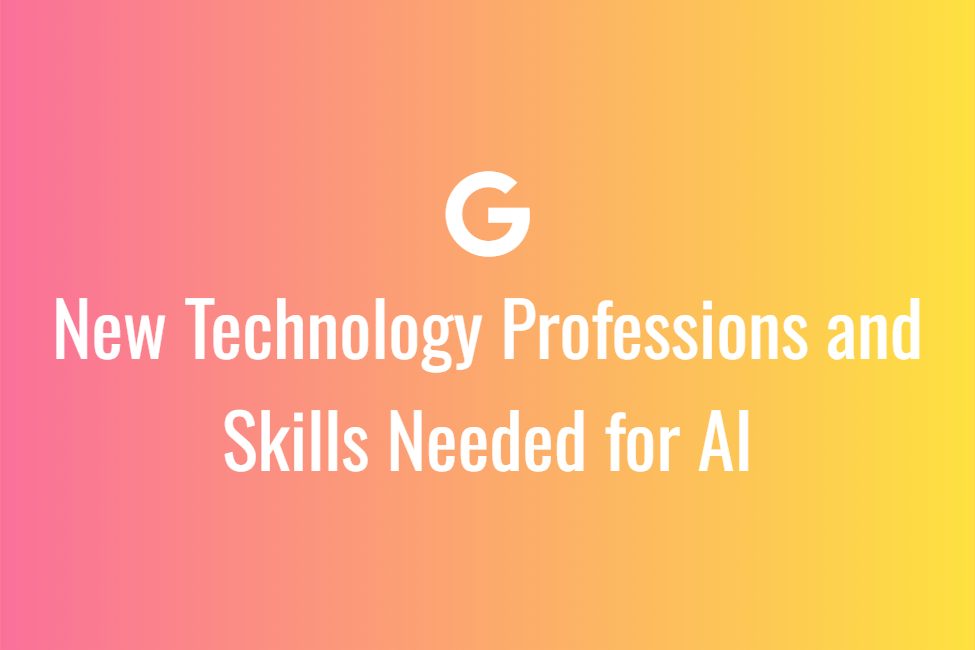Artificial intelligence has transformed from a futuristic concept to a practical reality that permeates numerous industries. Its ability to process vast amounts of data, learn from patterns, and make intelligent decisions has made AI an invaluable tool in sectors such as healthcare, finance, manufacturing, and more. With the growing adoption of AI, the demand for professionals with expertise in this field is skyrocketing.

Professions and Skills Needed for AI
- Data Scientist: Unraveling Insights from Data
Data scientists play a crucial role in the AI landscape. They possess the skills to extract, clean, and analyze vast datasets, uncovering hidden patterns and insights. Through their expertise in statistical modeling and machine learning algorithms, data scientists enable organizations to make data-driven decisions and develop AI models with high predictive accuracy. - Machine Learning Engineer: Building Intelligent Systems
Machine learning engineers are responsible for designing and developing AI algorithms and models. They work closely with data scientists to implement and optimize machine learning solutions that enable systems to learn and improve from experience. These professionals possess a deep understanding of various machine learning techniques and programming languages, allowing them to create intelligent systems that can automate tasks and provide valuable insights. - AI Ethicist: Ensuring Responsible AI Development and Deployment
As AI becomes increasingly prevalent, ethical considerations surrounding its development and deployment are gaining significance. AI ethicists evaluate the ethical implications of AI systems, ensuring they are fair, transparent, and aligned with societal values. These professionals guide organizations in implementing ethical practices, mitigating biases, and maintaining accountability in AI-powered solutions. - Natural Language Processing Expert: Enhancing Human-Computer Interaction
Natural language processing (NLP) experts specialize in developing AI systems that can understand and process human language. They design algorithms that enable machines to comprehend and generate human-like text, enabling applications such as chatbots, virtual assistants, and automated translation services. NLP experts are essential in bridging the gap between humans and machines, enhancing the efficiency and effectiveness of human-computer interaction. - Robotics Engineer: Developing Intelligent Robots
Robotics engineers work at the intersection of AI and robotics, creating intelligent machines that can perceive and interact with their environment. They design and develop robotic systems capable of learning, adapting, and performing complex tasks autonomously. These professionals possess expertise in areas such as computer vision, sensor integration, and motion planning, enabling them to build advanced robots for industries ranging from manufacturing to healthcare. - AI Consultant: Guiding Organizations in AI Adoption
AI consultants provide guidance to organizations seeking to implement AI solutions. They assess business requirements, identify opportunities for AI integration, and develop strategic plans for successful AI adoption. These professionals possess a comprehensive understanding of AI technologies, industry trends, and best practices, allowing them to help organizations leverage AI to enhance efficiency, productivity, and innovation. - Cybersecurity Analyst: Protecting AI Systems from Threats
As AI systems become more prevalent, ensuring their security and protection from cyber threats is paramount. Cybersecurity analysts specialize in safeguarding AI systems, identifying vulnerabilities, and implementing robust security measures. They develop protocols to prevent unauthorized access, detect anomalies, and respond to potential attacks, safeguarding sensitive data and preserving the integrity of AI-powered systems. - AI Trainer: Curating and Preparing Datasets for AI Models
AI trainers play a critical role in preparing datasets for training AI models. They curate and annotate datasets, ensuring high-quality and relevant data for model development. AI trainers possess expertise in data labeling techniques, data quality assessment, and data preprocessing, enabling them to provide AI models with the necessary training data for accurate predictions and insights. - UX Designer: Designing Intuitive AI Interfaces
User experience (UX) designers focus on creating intuitive and user-friendly interfaces for AI applications. They design interfaces that facilitate seamless interactions between users and AI systems, considering factors such as usability, accessibility, and visual aesthetics. UX designers collaborate with AI developers to ensure that AI-powered applications are not only intelligent but also easy to use and navigate.
FAQs
- What educational background is required to pursue a career in AI?
To pursue a career in AI, a strong foundation in mathematics, computer science, and statistics is essential. Many professionals in this field hold advanced degrees in fields such as computer science, data science, or machine learning.
- Are there any programming languages that are particularly important for AI professionals?
Python is widely used in the field of AI due to its simplicity, extensive libraries, and excellent support for machine learning frameworks. Additionally, languages like R, Java, and C++ are also valuable for specific AI applications.
- How can I acquire AI skills and knowledge if I’m already working in a different field?
There are numerous online courses, certifications, and bootcamps available that cater to individuals transitioning into AI from different fields. These resources offer comprehensive training and hands-on experience to help professionals upskill and gain the necessary expertise in AI.
- Is AI solely limited to the technology sector?
No, AI is being adopted across various sectors, including healthcare, finance, manufacturing, retail, and transportation. Its applications are diverse and continue to expand as technology evolves.
- What are some ethical challenges associated with AI?
Ethical challenges in AI include issues related to privacy, bias, transparency, and accountability. Ensuring that AI systems are developed and deployed responsibly is crucial to avoid unintended consequences and potential harm.
In conclusion, the rapid advancement of AI technology has created a demand for specialized professions and skills. Professionals in data science, machine learning, ethics, NLP, robotics, cybersecurity, data curation, and UX design are at the forefront of shaping the future of AI. As this field continues to evolve, acquiring the necessary expertise and staying updated with the latest developments will be key to thriving in the exciting world of AI.
Discover more from TechResider Submit AI Tool
Subscribe to get the latest posts sent to your email.
